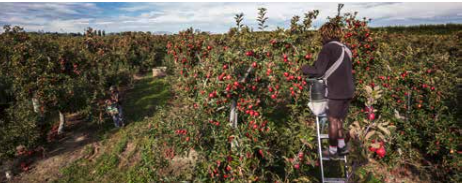The RSE Scheme allows the horticulture and viticulture industry to recruit overseas workers for seasonal work to supplement shortages of New Zealand workers. Across a number of regions’ the Scheme initially provided 5,000 workers, increasing to 11,100 during 2017/18 in response to worker shortfalls.
Further labour shortfalls are projected for and beyond 2018/19, and the cap on RSE worker numbers is expected to be raised to ensure a reliable supply of labour to support industry growth and regional economic development. The Industry projects that RSE worker numbers may double by 2022.
This increasing seasonal influx of RSE workers raises a number of issues for the regions Councils, including;
- How to support provision for extra seasonal accommodation in an already constrained housing/accommodation market.
- How to reconcile extra accommodation within the current planning framework, (noting that HPUDS seeks to consolidate urban environments and to restrict growth/sprawl onto valuable soils resources).
- How much land should be used to support housing for seasonal workers, and what land should be used?
- Should RSE accommodation be encouraged to utilise existing housing in existing residential communities, and if so in what form, what density, and how would effects be managed, such as residential amenity and traffic.
- How to ensure quality living environments for workers.
- How to achieve consistency between RMA Planning, Building Act Compliance and Housing Regulations 1947, and consideration of National Environmental Standards (Contaminated Soils),
- Reconciling Council roles against Ministry roles (Ministry of Business Innovation and Employment (MBIE) and the Ministry of Social Development (MSD)). With most of the demand for RSE workers in Hastings, the Hastings District Council is consulting with Industry and RSE accommodation providers to investigate RSE accommodation options to address some of these issues.
Existing RSE accommodation comprises a mix of orchard-based accommodation, residential rentals (houses), Motel’s, Hostel type accommodation and re-fitted buildings in industrial areas. Alternative options being considered by Council include:
• Onsite Accommodation Model:
Located either on orchards, or close to or on coolstore/packhouse sites, these would involve sleeping rooms clustered around a central facilities block supporting up to 80 Workers with onsite servicing (wastewater, water supply etc).
• Off Site Camp Model:
Larger community facilities accommodating up to 300 workers, including dormitories, kitchen/dining and recreation facilities. Off-site Camps would need to be located at the city edge on Plains Zoned or futureuUrban land or in Industrial Zones and would need connections to city wastewater disposal and water supply services.
Selected options are expected to be implemented through the Council initiating a Variation or Change to the Hastings District Plan, a process that would be open for public consultation.
Both Onsite or Offsite Models are likely to require site specific resource consents. This would involve the consideration of a range of matters such as servicing, proximity to work locations, effects on the soils resource, effects on rural amenity, transport effects, scale and compatibility with surrounding activities, and noise, dust, glare and traffic safety effects.
It is clear that the accommodation of RSE Workers is a matter of significance for the region and these workers are required to support the Region’s economic horticultural and viticultural productivity. It is also clear that whichever Model is selected for inclusion in the District Plan, the existing range of accommodation options will also remain and will also be likely to seek increased capacity.
RSE Workers are an increasingly important and integral part of our Community and our economy, and as legitimate residents, albeit under short terms Visa’s, RSE Workers are entitled to acceptance within our Communities, adequate accommodation and a fair appreciation for their contribution toward our Region.
Whatever model or range of models that may be determined, it is just as important that the Council, MBIE. MSD and industry groups work together to increase community and social acceptance and understanding of RSE accommodation within our environments through communication, public education and recognition.
The District Plan has a heavy focus to preserving and maintaining the productivity of our rural environments, however just like these environments require certainty around water rights to actually to grow produce, they also need certainty and provision for a labour force to service them. Providing for RSE workers is therefore all part of the system to deliver the outcomes sought by our guiding planning documents.



